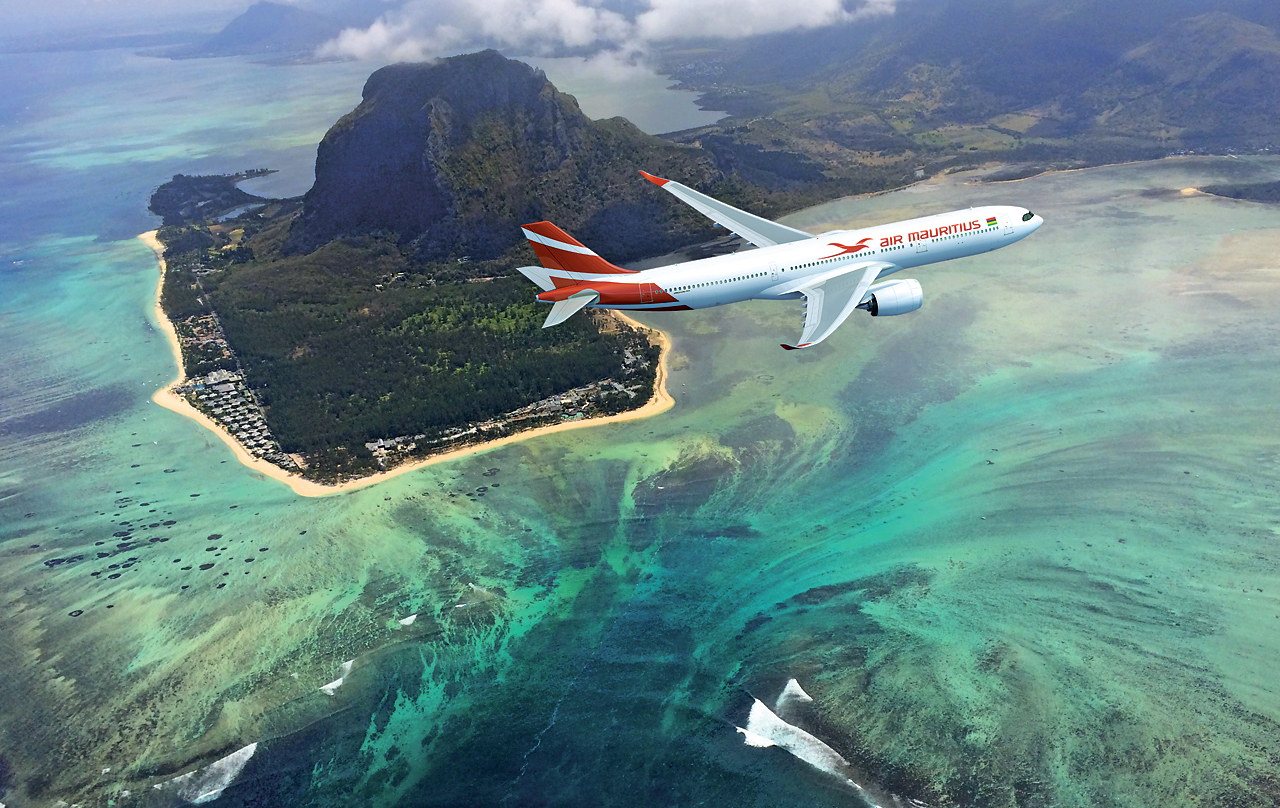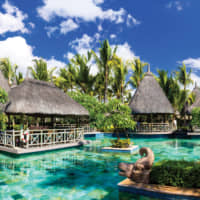Fueled by strong economic growth and enviable political stability, the ambitious island nation is building an outstanding reputation for businesses seeking to thrive there and on the mainland
The recent high-profile inauguration of the first permanent Japanese embassy in Mauritius marked the latest milestone in the blossoming relationship between the pair and opened an exciting new chapter in the ambitious island nation’s bilateral relations with a key trade and development partner.
The launch of the long-term diplomatic presence in the capital of Port Louis is a clear statement of intent by Japan and reinforces the huge confidence, high esteem and strong trust as it looks to capitalize on the republic’s enviable human assets and favorable strategic location in the heart of the Indian Ocean.
The transformation from a traditional island economy dependent on textiles and sugarcane is impressive and reflects Mauritius working hard to reinvent itself as a safe and secure hub for foreign direct investment (FDI). Through the signing of trade agreements, improved market access, attractive incentives and the creation of a vibrant and competitive private sector, the increasingly diversified economy has flourished.
Mauritius has enjoyed uninterrupted economic growth over the past few decades, and it boasts key advantages over other global financial centers. The growth curve is expected to continue with real gross domestic product growth projected at 3.9 percent in 2019, according to leading global financial institutions The World Bank and the International Monetary Fund (IMF).
While such progress is undoubtedly impressive, Mauritius offers huge untapped potential in several industries that investors from Japan are now being invited to explore against a backdrop of political, fiscal and social stability. In addition to the new permanent embassy, Mauritius’ Economic Development Board (EDB) has opened an office in Tokyo to further explore bilateral opportunities.
TICAD 7 will be trigger for big trade boost
Bilateral trade remains on an upward trajectory, with official data showing exports from Mauritius — mainly marine products and textiles — worth nearly $100 million to Japan in 2018. Heading the opposite way were significant volumes of automobiles and technology-related items, with Japanese goods worth around $1.5 billion delivered.
Those figures are forecast to maintain a positive momentum, especially with many major deals poised to be inked at The Seventh Tokyo International Conference on African Development (TICAD 7), in Yokohama.
His Excellency Yoshiharu Kato, first resident ambassador of Japan in Mauritius, is certainly very excited about the opportunities that lie ahead and is looking forward to spearheading such success and building on the core bilateral foundations that already exist.
“The strategic position of Mauritius as a gateway to Africa will not only boost trade and investment between Japan and Mauritius, but give our two countries a chance to work together on the international front and in the region as a whole,” he said.
“I am eager to see more private sector investment from Japanese companies looking to set up in Mauritius, creating jobs and new opportunities. This could lead to an economic boost for Mauritius. Our embassy has made efforts to strengthen bilateral relations and deepen mutual understanding.”
Japan’s support for its smaller partner is widespread and extends to activities and operations in diverse areas such as health, education, good governance and even space exploration. “Japan has been offering scholarships and training to students and public officials from Mauritius. In terms of consultancy, Japan has deployed a geotechnical expert for landslide management and some meteorological consultants will be providing technical training to the staff of the Mauritius Meteorological Services.
“Since the creation of the Embassy of Japan in Mauritius, we have helped the Mauritius Tourism Promotion Authority to participate in the Japan Tourism Expo 2018 organized by the Japan Association of Travel Agents in Tokyo and we created communication tools for the occasion, such as Japanese promotional booklets for Mauritius,” said the ambassador.
The two countries’ relationship has also blossomed in other ways, as the ambassador revealed: “The Japan Dodoshima Alumni Association (JDAA) was founded in October 2018 by former participants, mostly Mauritian public officials, under Japan International Cooperation Agency training programs.
“Meanwhile, JDAA was set up to regroup former participants and strengthen cooperation between Japan and Mauritius. It is also one of our missions to put in the spotlight Mauritians who are happy about the outcome and results of their collaboration with Japan.”
Global financial watchdogs praise progress
With its pro-business climate, advantageous strategic position and adherence to international standards and regulations, Mauritius is widely seen as the safest, and best, option for a Japanese business entering the African continent. Earlier this year, the IMF praised the island nation’s efforts to overcome some structural hurdles in an upbeat report on its economic performance and policies.
“The Mauritian economy continues to grow at a steady pace, benefiting from a vibrant services sector and strong domestic demand,” the Washington D.C.-based entity noted. “Mauritius is pursuing an ambitious strategy — centered around upgrading infrastructure, promoting diversification and spurring private investment — to foster inclusive growth and reach the high-income country milestone.”
Although only in its infancy, the EDB has made a strong start in life following its early 2018 birth from the merger of the Board of Investment, Enterprise Mauritius and the Financial Services Promotion Agency. As an apex body operating under the aegis of the Prime Minister’s Office, the EDB synergizes efforts across all ministries and private stakeholders to meet the set goals.
Heralded as an exciting new era for investment in Mauritius, the creation of the EDB is a new chapter in economic planning, investment, trade promotion and facilitation. In addition to its ongoing work with highly developed countries like Japan, the EDB aims to reinforce economic collaboration with African states in order to leverage on the geostrategic position of Mauritius to drive investment into the continent.
With around two dozen double taxation avoidance treaties and a similar number of investment promotion and protection agreements already signed with African allies, Mauritius offers investors a solid platform for doing business in a broad range of sectors.
The EDB is available to guide and support investors exploring all industries, including the lucrative financial services sphere. In a bid to foster cooperation among financial centers and to position Mauritius as an international financial center (IFC) of choice, repute and substance, the EDB became a member of the World Alliance of International Financial Centers in July.
“The overarching objective of the EDB is to ensure greater coherence and effectiveness in implementing policies and draw the vision for the economic development path to be adopted to reach a high-income economy status, through sustainable and inclusive growth, while ensuring economic independence,” said EDB CEO François Guibert
“The mandate of EDB is to, inter alia, provide strong institutional support for strategic economic planning and ensure greater coherence and effectiveness in economic policy formulation, promote Mauritius as an attractive investment and business center, a competitive export platform, as well as an IFC. … and facilitate inward and outward investment and ensure a conducive business climate.
“The locomotive of our transformation stems from wanting to position Mauritius as a center of excellence for Africa. This continent is the next region where annual growth will average double digits, and Mauritius has a key role to play on this front. That notion includes different things, for example, what we are doing presently by creating safe solutions for investors to look at the potential of Africa,” Guibert said.
EDB energizes growth and entices new FDI
While the senior executive acknowledges there are comparatively few natural resources in the country, he emphasizes Mauritius’ impressive human resources and capacity to train engineers for mining industry operations elsewhere on the continent means their services are in great demand.
“We also have a very strong financial services sector that allows these mining activities to take place in Africa,” said François Guibert. “We have investor protection agreements with 24 African countries. This is not only a place where you can feel assured to locate your investment, there are also many value-added services such as internationally recognized arbitration. With two centers on the island, Mauritius is signatory on all conventions of arbitration.
“The key is we are the only Commonwealth country where the Napoleonic Code still prevails, which means in our legal system we have the British common law and the French civil law. We get a lot of people doing research on how these two systems intertwine.
“The benefit of this is very clear if we look at Africa holistically, as it has countries with French law and British law, you can more or less divide Africa between those two, and the legislature in Mauritius has experience in both. So, not only do we facilitate investment towards Africa, but in cases of conflict we have the proper structure to resolve disputes through arbitration,” Guibert said.
Focus on innovation and education is key. Economic Development Board’s Chairman, Joseph E. Charles Cartier, highlights how seriously Mauritius takes its role in helping the creation of one giant African market. African nations only trade 12 percent between themselves, compared to a 60 percent rate between EU countries and a 24 percent figure in Asia.
“Just imagine the kind of economic boost that will be seen if we move to 20 percent and then 30 percent. This is the key role we want to play as we want Mauritius to be part of the supply chain of African industry,” Cartier said.
“Strategic Japanese investment could be implemented effectively in the infrastructure we are developing to reinforce our maritime strength at Port Louis. There is also a very strong education sector in Japan that could further bolster our scholarly offering here, if the U.K., France, Australia and other developed nations have based several universities here, then why not Japan?
“Placing a Japanese education institution here would expose the African continent and its young minds to Japanese culture, language and way of doing business. This would cement the ties and open a gateway for Japanese investors to work in Africa.”
According to Cartier, one of the main drivers of the Mauritian economy is innovation and technology, with officials seeking to embrace innovation in research and development and agriculture; not only in traditional areas such as banking and financial services.
“We want to enhance our agricultural production to be intelligent by using technologies such as the internet of things; using mobile apps that allow farmers and workers to know exactly what is happening in their fields and act upon that sensor data accordingly,” he explained.
“We are a small country and this is something similar to Japan, giving us even more of a reason to collaborate on this front as they already have the experience to deploy this technology here. As for financial technology (fintech), we want to position Mauritius as a laboratory for technologies that can be exported to the rest of Africa.
“We have the Mauritius Africa FinTech Association and are launching innovative legislation to make this happen. The best example is the creation of a framework that sets out the rules for a license that allows the holder to provide custody services for digital assets. This move makes Mauritius the first jurisdiction globally to offer a regulated landscape for the custody of digital assets.”
Strong performance in coveted rankings
One honor Mauritius is very proud of is its leadership position in the annual Ease of Doing Business rankings in Africa. The republic jumped from 25th to 20th place in the latest coveted survey of 190 countries by the World Bank.
The report’s authors recognized the series of improvements achieved by Mauritius in eight out of the 10 indicators, namely starting a business, dealing with construction permits, getting electricity, registering property, protecting minority investors, paying taxes, trading across borders and enforcing contracts.
Mauritius also performed relatively well in the 2018 Corruption Perceptions Index by Transparency International, ranking in the top third of the 175 countries surveyed. That improved position was welcomed by Minister of Financial Services and Good Governance Sudhir Dharmendar Sesungkur.
“Mauritius has modernized its rules and legal system to become fully compliant with international standards, which is extremely important for international investors,” the minister confirmed. “We are eager to welcome a few banks from Japan. They don’t need to come and set up a big office. They can set up a branch, which doesn’t need a huge amount of capital.
“This can accompany businesses from Japan targeting Africa. Once they have the momentum, they can decide whether to have a full-fledged office, but they have the money and the capital Africa needs. Japan can be a key player and partner in the development of Africa.”








